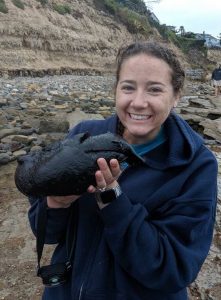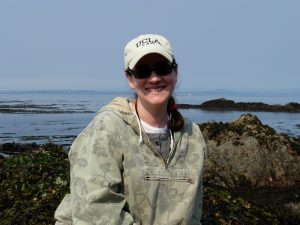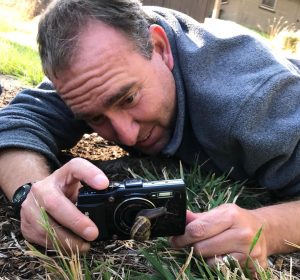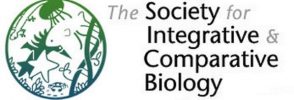Contents
- Division of Invertebrate Zoology: Newsletter Spring 2020
- Message from the Chair, Ken Halanych, Chair.DIZ@sicb.org
- Message from the Program Officer, Karen Chan, DPO.DIZ@sicb.org
- Message from the Secretary, Justin McAlister, Secretary.DIZ@sicb.org
- Message from the Student and Postdoctoral Affairs Committee representative, Rebecca Varney
- Message from the Student Awards Committee Chair, Anne Böttger
- Message from the Libbie Hyman Scholarship Selection Committee Chair, Jennifer Burnaford
- DIZ Chair Candidate Biographies
Division of Invertebrate Zoology: Newsletter Spring 2020
Please vote in the Spring 2020 Elections (candidate biographies can be found below). The deadline is April 19th, and the ballot can be found in the link provided here. http://burkclients.com/sicb/elections/2020.php
Message from the Chair, Ken Halanych, Chair.DIZ@sicb.org
VOTE PLEASE! The biographies for candidates for our divisional elections are given below. This is important!

Here’s to the successful meeting in Austin! The Division of Invertebrate Zoology had a strong showing with several excellent presentations and great engagement across the board. This year marked the first year where the format of the DIZ best student papers was a bit different by having all the candidates for the best student papers in a single session (see below for winners). One advantage of this format is that the same judges viewed all presentations being considered. Because we will continue this format next year, I just wanted to give some quick advice to students as to the selection process for being placed in this session. Abstracts will be judged by a committee at the time of submission. The committee is looking for “the best science” as judged from the abstract. However, abstracts that have a clear hypothesis, presented the main results and placed findings in a larger context, tend to do well. In contrast, abstracts that are more preliminary reports, where the submitter has creatively avoided stating results or conclusions usually suggest that the work is not complete, or mature, yet.
Although many see SICB as being one week in in early January, many parts are moving all year long and depend on the contributions from volunteers of all career stages. Below you will see the biosketches for 2 excellent candidates to be the next Chair of DIZ. Please take some time to look at these and vote. Importantly, we will have more turnover in officers in the future and we need good candidates, especially from younger career stages. Please consider giving some of your time and effort to SICB and DIZ.
Another way to support SICB is through submission of symposium proposals. Especially for earlier career individuals, organizing a symposium is a great way to network and build your reputation. For the past several years, Linda Walters has been the DIZ PO and has done an amazing job. Thank you! Karen Chan has taken over that role. If you have questions about symposia, please write to her or to any of the DIZ officers.
Lastly, my parting shot is again a plea to all in DIZ to become more involved outside of the “ivory tower,” whether it be in K-12 outreach or educating family members on the importance of science, and fact-based decision making, in society. Over the past few years, several “societal norms” have shifted dramatically. This is starting to take shape in how agencies (from local to Federal) are prioritizing and funding science. If there was ever a time to try and reach out and inform other constituents of society, the time is now. — Ken Halanych
Message from the Program Officer, Karen Chan, DPO.DIZ@sicb.org
Greetings from your newly-minted Program Officer! I would like to first thank my generous predecessor Linda Walters who has served our division as PO for the past three years. Linda even carved out time in her busy schedule during our Austin meeting to show me the ropes. Do you know the Program Officers are the people behind the venue arrangements, talks and poster schedules (and the fun session titles), and selecting the symposia? I have a lot to learn from you all and am ready to take the challenge head-on.
The 2020 Meeting in Austin was such a great experience. I enjoyed learning the new science, catching up with old friends, and met a couple new ones. This year was the first time I took undergraduates from Swarthmore College with me to the meeting. The following questions my students raised highlight how special SICB is. Question one “Are all scientists this friendly to students? Everyone is so kind and is interested in what we do. Question two “How did you manage to see all the talks/posters? There is so much to see”. If you have met excited young men, “speed walking” through the poster hall, you might have spotted my students.
We have a lot to look forward to for the 2021 meeting in Washington D.C. DIZ will be supporting a total of 7 symposia.
- Blinded by the light: Effects of light pollution across diverse natural systems. Organizer: Meredith Kernbach
- Genomic perspectives in comparative physiology of mollusks: Integration across disciplines. Organizers: Omera Matoo and Maurine Neiman
- Biology beyond the classroom: Experiential learning through the authentic research, design, and community engagement. Organizers: Ali Hansen, Patrice Kurnath Connors, and Hayley Lanier
- Spatiotemporal dynamics of animal communication. Organizers: Kim Hoke, Nate Morehouse, and Sara Wasserman
- The integrative biology of pigment organelles. Organizers: Florent Figon, Jerome Casas, and Leila Deravi
- The biology of sticky: Adhesive silk, fiber, and glue biomaterials across Eukaryota. Organizers: Merdedes Burns and Sarah Stellwagen
- Metachronal coordination of multiple appendages for swimming and pumping. Organizers: Margaret Byron and Arvind Santhanakrishnan
If your favorite symposium topic is not on the list, why not organize one for 2022? Here are some general suggestions for symposium proposals: 1) get started early, you can reach out to any program officers between now and the submission deadline and we are here to help; 2) make sure you fill your symposium schedule i.e. secure your speakers early; 3) be inclusive in your speakers selection; 4) propose something that is novel (i.e. not a repeat of topics discussed in SICB symposium in the recent past). Please feel free to reach out to our Chair or me if you have a symposium idea for the meeting in Phoenix, AZ.
May you all have a productive, healthy, and happy Year of the Rat. Regards, Karen Chan
Message from the Secretary, Justin McAlister, Secretary.DIZ@sicb.org
Hello again invertebrate lovers! I hope you all enjoyed the 2020 Annual Meeting in Austin, TX, which was excellent!
As in meetings past, this year’s DIZ business meeting focused on updating members of the Division about ongoing business. In the fall newsletter, I’ll provide a link to the meeting minutes below and encourage you to read them at your discretion. This year there were changes to the Student Awards Program, as there were single sessions for both the oral and poster presentation awards. These sessions were named in honor of Mary Rice (oral presentations) and Alan Kohn (poster presentations). The format worked well and I encourage students to take note of Ken’s suggestions (see his update above) for future submissions.
This year we will hold elections for our next DIZ Chair and the nominating committee has narrowed your choices down to the following two strong candidates: Jennifer Burnaford and Jon Allen. You’ll find more information about both of these candidates at the end of the newsletter. We also have a new Program Officer in DIZ, Karen Chan, and she’s providing her first newsletter update.
As always, please contact me if you have exciting or interesting news to share about invertebrates. I’ll be sure to pass it along to our members. Sincerely, Justin
Message from the Student and Postdoctoral Affairs Committee representative, Rebecca Varney

Hi there! I’m Rebecca Varney, and I’m excited to be taking over as the student/postdoc representative for DIZ. I’m currently a PhD candidate at the University of Alabama working on molluscs, where I use genomics and physiology to learn more about chitons and their incredible iron-clad teeth. I went to my first SICB in 2017 and was blown away by the supportive and enthusiastic tone of the conference, especially among my fellow invert nerds. I am happy to become a more official part of that, and I look forward to serving you over the coming years. — Rebecca Varney (rvarney@crimson.ua.edu)
Message from the Student Awards Committee Chair, Anne Böttger
Thank you to everyone who made the Annual SICB Meeting in Austin, TX memorable and a special thank you to all the students who presented! It was a great meeting that included excellent student presentations representing the Division of Invertebrate Zoology. We would also like to take the time and thank the 34 volunteer judges for their continuing commitment to the student presentations and their invaluable comments supporting our DIZ students. As a reminder, in order for students to compete in our division, they need to be a member of the DIZ. This year 31 students competed for the best student paper in 8 oral and 19 poster presentations. The Adrian M. Wenner Strong Inference Award was not awarded this year due to a lack of presentations following the required format.
The winners of the DIZ presentation awards for the 2020 SICB meeting are:
Mary Rice Best Student Oral Presentation
Winner – Samuel Bedgood: Making it Big and Losing Friends: Algal Symbiont Contributions are Shaped by Sea Anemone Life History.
Runner-up – Alyssa Liguori: Exploring local adaptation to salinity and temperature variability in the copepod Tigriopus californicus.
Alan Kohn Best Student Poster Presentation
Winner – P.B. Caine: Colony Recognition and Aggression in Invasive Argentine Ants (Linepithema humile) of Georgia.
Runner-up – E. Urban-Gedamke: Evaluation of 3-D Cell Culture Methods for Marine Sponges.
Please join me in congratulating these outstanding students for their contributions. I look forward to seeing you all at the next meeting in Washington D.C. in January 2021! Sincerely, Anne
Message from the Libbie Hyman Scholarship Selection Committee Chair, Jennifer Burnaford
Applications for the 2020 Libbie H. Hyman Memorial Scholarship were due on 4 February. We received 18 applications this year which were reviewed by a three-person committee: Dr. Will Jaeckle, Dr. Shanna Hanes, and Dr. Jennifer Burnaford. We will be supporting three applicants for the 2020 field season.
- We awarded $3000 to Charlotte Benedict to support participation in the Marine Invertebrate Zoology course at the University of Washington Friday Harbor Laboratories. Charlotte will be starting in the Fall as a graduate student in the lab of Marymegan Daly at Ohio State University. Charlotte has a background in molecular phylogenetic research and bioinformatics, and this course will give her an opportunity to learn about her study organisms from a different perspective, with a comprehensive analysis of diversity and morphology that will establish a solid foundation for her graduate work.
- We awarded $1000 to Hannah Lee to support travel to the Oregon Institute of Marine Biology as part of her MS work on the evolution of cheilostome bryozoans. Hannah, who is in her first year in Sean Craig’s lab at Humboldt State University, will spend time at OIMB as she travels along the US Pacific Coast to collect specimens from the family Microporellidae. For her graduate research she will focus on genetic analysis of mitochondrial and nuclear genes which can be combined with morphological data to resolve phylogenetic relationships.
- We awarded $654 to Rachel Surprenant to support her participation in the ‘Taphonomic and Ecological Processes in Tropical Environments’ course at the University of the Bahamas Gerace Research Centre on San Salvador. Rachel is in the second year of her graduate work in paleontology at the University of California Riverside, where she works with Mary Droser. Her research is focused on fossilized invertebrates in the Ediacaran period, and participation in this field course will enable her to investigate variability in preservation fidelity of soft-bodied reef-dwelling organisms, which will provide perspective on decay models in globally disparate reef ecosystems.
As always, I would like to acknowledge the exceptional team which makes the application and award process move smoothly, with thanks to Will Jaeckle and Shanna Hanes for their thoughtful and thorough review of applications and SICB Webmaster Ruedi Birenheide for all of his work with the webpage and application logistics.
The Libbie H. Hyman Award provides funding to support the first significant field station experience for advanced undergraduates or early career graduate students pursuing coursework or research on invertebrates. This first field station experience is typically a transformative period in the career and life of a student. We deeply appreciate the donations which allow us to support these experiences. As the costs associated with summer field station experiences continue to rise, we are always happy to accept contributions to the Scholarship Fund so that we can increase the amount of support to these deserving students. To contribute, click on Donate to SICB on the SICB home page (www.sicb.org) or send a check to: SICB Business Office, Libbie H. Hyman Memorial Scholarship Fund, 1313 Dolley Madison Blvd., Suite 402, McLean, VA 22101. Checks should be made payable to SICB and marked as a “Contribution to the Libbie H. Hyman Memorial Scholarship Fund.” All contributions are tax deductible. Thanks for your help! — Jennifer
DIZ Chair Candidate Biographies
(Ballot: http://burkclients.com/sicb/elections/2020.php)
Jennifer L. Burnaford

Current Position: Associate Professor of Biological Science, California State University, Fullerton (CSUF)
Education: B.A. Dartmouth College (1992), Ph.D. Oregon State University (2001), NSF International Postdoctoral Fellow Arizona State University / Intercultural Center for the Study of Deserts and Oceans, Puerto Peñasco, Mexico (2001 – 2003)
Professional experience: Visiting Instructor, University of Washington Friday Harbor Laboratories (2003); Visiting Assistant Professor, University of Puget Sound (2003 – 2009); Assistant Professor, CSUF (2009 – 2015); Associate Professor, CSUF (2015 – present)
SICB activities: Member since 2000. Society-Wide Activities: Educational Council: 2019-present. Member-at-Large: 2015-2018. Dorothy Skinner Award Committee: Member 2016, Chair 2017. DIZ Activities: Libbie Hyman Scholarship Committee: Chair 2010 – present. DIZ Nominating Committee: Chair 2015. DIZ Student Poster Judge: annually.
Other memberships: Society for the Advancement of Chicanos/Hispanics and Native Americans in Science, Western Society of Naturalists (Diversity Equity and Inclusion Committee 2018-present), American Society of Limnology and Oceanography, Phycological Society of America (Science and Public Policy Committee 2011-2013).
Research Interests: Plant-Herbivore Interactions, Physiological & Community Ecology, Habitat Modification, Invasive Species.
Goals Statement: I am strongly committed to all three prongs of SICB’s mission to foster “research, education, and public awareness.” I attended my first SICB meeting as a graduate student, and as I increase my level of service I become more inspired by our members and our potential and more committed to give back. After 10 years as chair of the Libbie Hyman Scholarship committee, I see the office of DIZ chair as an exciting opportunity to help support our current division members and to engage the next generation of scholars in a long-term commitment to DIZ. I look forward to working with officers and members to help develop forward-thinking meeting programs which inspire new perspectives and build a diverse community. I would work with the Public Affairs Committee to reach out through traditional and social media to inform potential members, lawmakers, and voters about our science and its relevance to their lives. SICB, and DIZ, has a dynamic and important role in a changing environmental and political landscape, and I look forward to the opportunity to work with our members to build community and a strong future.
Jonathan D. Allen

Current Position: Associate Professor of Biology and Co-Director of the Undergraduate Program in Marine Science at William & Mary
Education: B.S. Bates College (1998); Ph.D. University of North Carolina at Chapel Hill (2005); Postdoctoral Scholar Bowdoin College (2005-2008)
Professional Experience: Assistant Professor, Randolph-Macon College (2008-2009); Assistant Professor, College of William and Mary (2009-2015); Associate Professor, College of William and Mary (2015-Present).
SICB Activities: SICB member since 1999; Student Support Committee 2013-2016; Membership Committee 2012-2015; Secretary, Division of Invertebrate Zoology 2013-2016.
Other Memberships: American Microscopical Society, American Society of Naturalists, Ecological Society of America, Sigma Xi
Research Interests: Larval biology of marine invertebrates; evolution of complex life cycles with emphasis on the role of maternal investment in driving changes in development; ecological developmental biology with emphasis on the role that predator cues and changes in water quality play in inducing developmental plasticity.
Goals Statement: The annual SICB meeting was the first professional conference that I ever attended, and it is the one I most frequently return to with my research students. Within SICB, the Division of Invertebrate Zoology is the one that I call ‘home’. I can see two major roles for the division Chair. One role is to build membership in the Division by attracting new students and colleagues to present their excellent work on the invertebrate animals that we all know and love. This can be achieved by continuing to co-sponsor symposia and also by spreading the word about attending the annual meeting, which I think is one of the best professional conferences there is. The second role is to build financial investment in the Division through gifts to the Hyman Memorial Scholarship which has done so much over the years to draw new students into the study of invertebrates. More generally, SICB (and DIZ in particular) holds a special place for me as a professional home away from home and I count many of my greatest friends in its membership. I want to do what I can to give back to the society and division that has meant so much to me.
